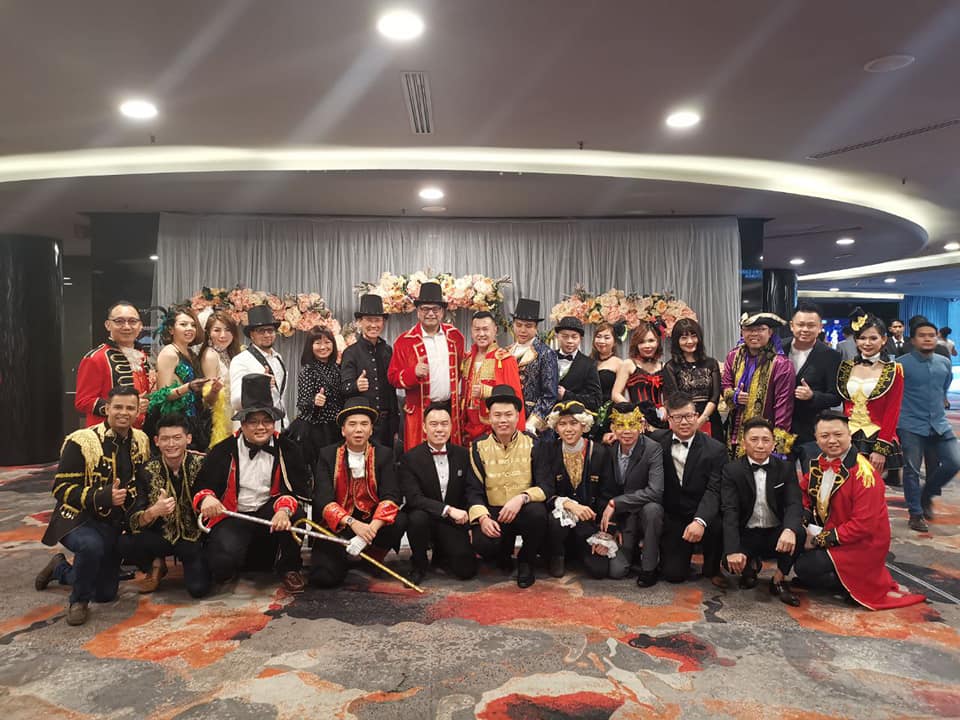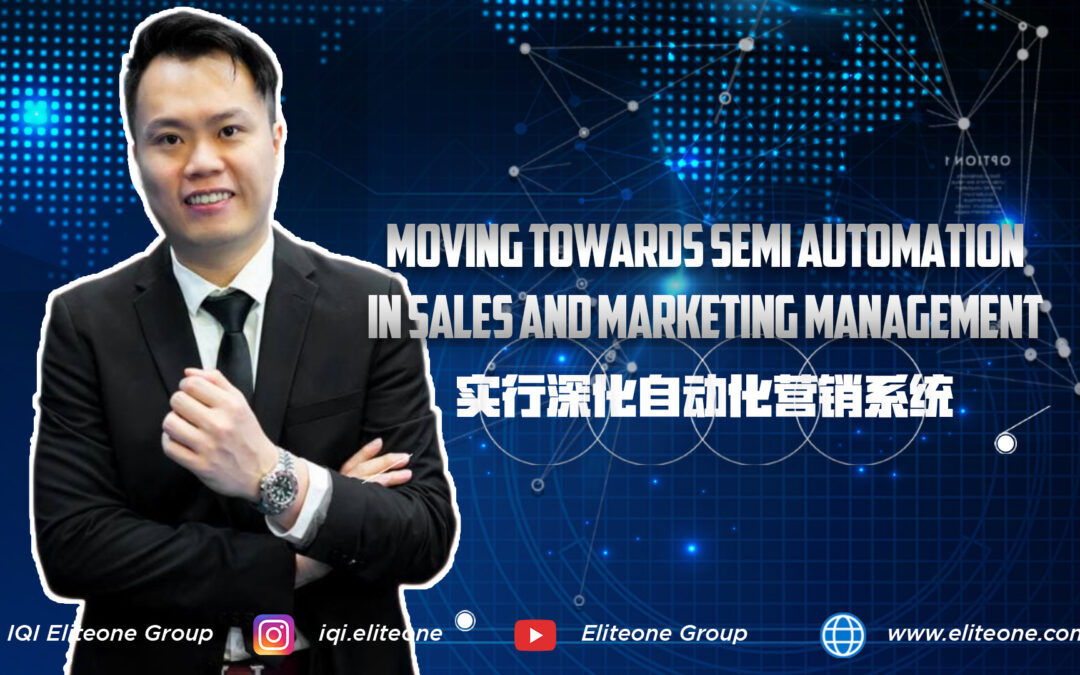Closing a single deal often involves several contacts with a high-quality prospect. Even after the sale, your team is likely committing hours to managing relationships, answering questions, fulfilling orders and providing other support services via phone calls, emails, meetings, social media and other channels.
It adds up. Multiply that by the number of customers you have — and aim to have as you grow and expand your business — and digital sales and customer relationship management become real time-killing challenges. Either your team forgoes other duties, or you fall behind, unable to deliver the level of service and personalization you had aimed for.
The solution is simple, automation of sales and marketing management. Quoting Forbes, “Marketing and sales automation gives companies the opportunity to attract, acquire, and retain customers while satisfying their current needs for personalization, care and tailored services.”
Marketing technology is moving at a rapid pace that is enabling businesses to reach more potential customers and better engage existing ones. So, if you are still stuck with excel sheets and manual outreach processes, it’s time to re-examine how you can bring in the much required marketing efficiency to your business.
Sales automation may just be the answer to all your selling woes. Have you ever lost a deal because you forgot to follow up? Went back and forth with a prospect figuring out a good time to meet? Or even wasted half an hour digging through your files to find the specific deck you needed?
DAVE CHONG

If you can relate to any — or all — of the above, you need automation. This guide will walk you through moving towards semi automation in sales and marketing management, and to explain this brief, IQI had a session with Dave Chong as the speaker to share his two cents on the topic.
Decorated with achievements as the IQI Group Vice President as well as the founder of IQI Eliteone Group, Dave Chong started out as only a part time real estate negotiator.
Dave then went on to establishing it as a successful career for himself over a short span of eight years. In his first five weeks of joining IQI, he managed to seal five deals, with a commission of over RM50,000.
However, he was dejected when he faced cancellations at the end of the month. Despite being down in the slumps, Dave picked himself back up and convinced himself that this was only a slight setback in his journey.
In 2014, Dave went on to becoming one of the Top 10 Achievers in IQI and was promoted to team leader and team manager thereof. To date, Dave has closed over RM1 billion in sales for IQI, laminating is outstanding feat.
Semi Automations System

Dave shares that in this era of digitalisation, many are moving forward with the aid of technology and marketers can do so as well. He hinted that many agents have also gone on to close deals via Zoom sessions, which furthers laments this point.
The sales process, or the sales funnel, involves tracking customer relationships from beginning (prospective customers) to end (customers). The various steps can be time-consuming and involve a lot of data input and analysis.
Dave explains that the conventional method is no longer the most efficient. Sales reps would have to filter manually if their clients are qualified. However, thanks to modern technology tools like Chat Mamba or even Facebook, many parts of this process can be automated, thus saving you valuable time and resources.
Facebook documents and details all of the customers’ information which allows sales reps to identify the criteria, needs, wants and qualification of the clients. This represents semi automation of sales and marketing and it proves to be a more sustainable method.
Dave touched on how to improve each step in the system of closing a deal, which comprises of leads, appointment, presentation, closing, follow up and referrals. This system is due for automation and Dave has hinted that IQI Eliteone is working on building and refining this system for its marketers.
Describing the sales funnel, Dave broke it down to awareness, interest, decision and action. This funnel perfects the most imperative part of a sales process, which is the lead.
Previously, sales reps would have to manually download their leads and transfer it into an Excel Spreadsheet or Google Sheets. From there, it had slowly evolved into using third party software such as Zapier, which is a semi automation that simplifies a lot of time-consuming tasks.
Zapier may ease downloading and transferring leads, but it is still not as efficient once it has been transferred into Google Sheets, creating many folders which then makes it a hassle for users to sort out.
To solve this, Dave has spent his time during the Movement Control Order (MCO), to create a system which eases this particular hassle. The system is now available for the use of all IQI members.
The system created by Dave automates the whole process of sorting your Google Sheets once the file has been downloaded through Zapier. He shared that through the system, users can view their own leads, add remarks and set reminders to follow up with the leads.
This particular digital sales automation involves streamlining manual, time-consuming tasks so that the organization’s talented salespeople can spend less time on admin and more time doing what they do best: selling. Automated tasks can include all the administrative and data entry tasks that reps, leaders and managers do daily, weekly and monthly.
The semi automation holds the potential to reduce the cost of sales by freeing up time spent on administration and reporting and to unlock additional revenue by automating outreach to customers in the sales funnel. But many decision makers are not aware—or have not taken advantage—of the value that sales automation can create across a growing range of use cases.
To benefit from the emerging opportunity, sales organizations must adjust their ways of working as well as their technology platforms to ensure that sales reps and automation solutions work hand in hand. Early adopters of sales automation consistently report increases in customer-facing time, higher customer satisfaction, efficiency improvements of 10 to 15 per cent, and sales uplift potential of up to 10 per cent.
Marketing and sales go hand in hand, so it’s no surprise that marketing will play a part in your digital sales automation strategy.
Marketing outreach is an integral component of building long-term relationships with your prospects and clients — but it can take time. By streamlining and automating your marketing, your team can spend more time refining and optimizing messaging to boost ROI and conversion rate.
Automated digital marketing campaigns can be delivered via email, social media and other avenues. Dave has also shared that this was particularly proven through the Eliteone landing page and email blasting method. Here, marketers can filter out qualified clients and saves them the time of calling all the clients who have filled out the form. Email blasting and perks of the landing page has proven it produced results.
Another successfully proven platform is through Telegram channels. With over thousands of members, marketers can easily reach out to customer via this platform and clients can reach out to reps thereof, automatically filtering those who are interested.
Moving forward, it is also crucial that marketers create automated video presentations, i.e a video presentation of a showroom walkthrough. This interactive method, in the time of a pandemic, allows for a more comprehensive experience for customers. These virtual showrooms also allow reps to filter their leads easily.
Benefits of Automation System

Dave shared that with these methods, the team has gone on to achieve incredible feats over the past six months by closing over RM650 million sales in total and some even converting more than RM10 million.
There should be no excuse for sales teams to be reluctant to introduce new systems and unfamiliar technologies. Expectations are changing fast. Consumers demand a level of personalization above and beyond anything that came before. Whether you are running a small- to medium-sized business or enterprise-level organization, there’s just no way a team can keep up using manual systems.
Automation doesn’t necessarily have to be an advanced AI capable of solving complex riddles, predicting and magically running your show. Nor does it mean that you should be able to automate the complete chain of activities in a process. Using marketing technology to reduce manual effort and intervention itself can save a ton of time and improve conversions.
Even smaller hits with partial process automations can bring in significant wins. What’s most important is structured thinking about marketing processes to identify areas of opportunities and implementing automated systems to run the show for you.
With sales and marketing automation on your side, you can accomplish more on a mediocre day than you used to on your best days. Implement these tools, and let the results speak for themselves.
Automation is the key to delivering superior customer experience. So, if you want to future-proof your business, it’s time to embrace automation technology.

